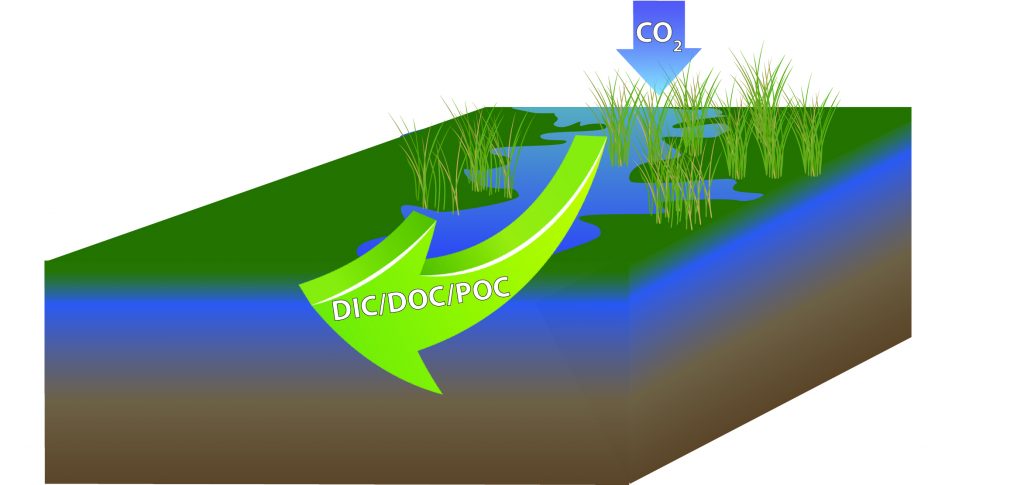
Lateral carbon flux in tidal wetlands: Filling a key knowledge gap through a methods intercomparison and data synthesis
Knowledge of the magnitude and mechanisms of carbon (C) cycling in tidal wetlands, including salt marshes, mangroves and tidal fresh wetlands, is a prerequisite for understanding their role in coastal ecology and carbon budgets, as well as interaction with the chemistry of the coastal ocean. The high rate of net ecosystem exchange in tidal wetlands provides a strong linkage between the atmosphere and the coastal ocean, since lateral aquatic export appears to be an important or dominant fate of that fixed carbon.
This small group intercomparison activity will bring together experts to first review and then compare methods to establish best practices for deriving lateral C fluxes. During this workshop, we will develop consensus on conceptual models of processes related to lateral fluxes, as well as the appropriate interpretation of flux data from each method. In addition, we will develop and apply algorithms and scripts for transforming data into flux measurements.
Key outcomes of this activity will include 1) a critical method review outlining the strengths of various data collection methods and modeling approaches to calculate lateral flux; and 2) a database of lateral fluxes across the U.S..
August 21-23, 2018: Methods Intercomparison and Data Synthesis Meeting (Woods Hole Oceanographic Institution, Woods Hole, MA, USA) - Participant list, Meeting summary
Updates and Recent Activities
The OCB-supported activity “Lateral Carbon Flux in Tidal Wetlands” (https://www.us-ocb.org/lateral-c-flux-tidal-wetlands/) brought together experts to review methods and synthesize data on tidal exchange of carbon between wetlands and the coastal ocean. The ultimate, ongoing goal is to estimate annual rates of carbon exchange across the contiguous U.S.
Knowledge of the magnitude and mechanisms of carbon cycling in tidal wetlands, including salt marshes, mangroves and tidal fresh wetlands, is necessary to understand their role in coastal ecology and carbon budgets, as well as interaction with the chemistry of the coastal ocean. The high rate of carbon exchange in tidal wetlands provides a strong linkage between the atmosphere and the coastal ocean, since lateral aquatic export appears to be an important or dominant fate of that fixed carbon.
During the workshop, two approaches were agreed to pursue the U.S.-scale flux estimation:
- Develop a set of new flux rate estimates based on ongoing research of participants; test relationships to measures of carbon supply rate and frequency of aquatic exchange between wetland and ocean. Derive predictive relationships, and use to map rates.
- Calculate the lateral flux as the unknown in the net ecosystem carbon balance, based on measured or estimated rates of carbon storage and productivity.
Progress and outcomes to date include:
- Successful development of mapped products to support the lateral flux estimations, led by workshop participants:
- Feagin, R.A., Forbrich, I., Huff, T.P., Barr, J.G., Ruiz-Plancarte, J., Fuentes, J.D., Kroeger, K.D., Najjar, R.G., Bhaskar, M., Noormets, A., Miao, G., King, J., Windham-Myers, L., Bergamaschi, B., Moore, G., James-Hernandez, A., Mohanty, B., Knox, S., Schäfer, K.V.R., Vargas, R., Velazquez, A.L., Leclerc, M., Nahrawi, H., Alber, M., Hinson, A.L. (2020). Tidal wetland Gross Primary Production (GPP) across the continental United States, 2000-2018.Glob. Biogeochem. Cycles, https://doi.org/10.1029/2019GB006349.
- Holmquist, J.R., Windham-Myers, L. A Conterminous USA-Scale Map of Relative Tidal Marsh Elevation. Estuaries and Coasts 45, 1596–1614 (2022). https://doi.org/10.1007/s12237-021-01027-9.
- Continued progress by workshop participants toward new, measured rates of lateral carbon flux at several sites around the U.S.
- A planned session with significant focus on lateral fluxes at the upcoming Coastal & Estuarine Research Federation conference, led by workshop participants R. Chen et al.: CERF 2019, Nov 3-7, 2019 in Mobile, AL, Carbon fluxes in coastal systems, https://cerf.confex.com/cerf/2019/webprogrampreliminary/Session2191.html
- A planned presentation from K. Kroeger, et al. at the OCB summer 2019 conference, to report outcomes and progress

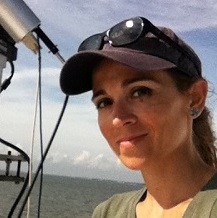
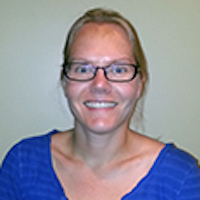

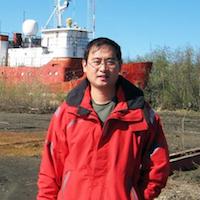
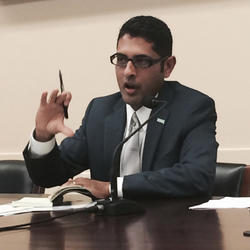
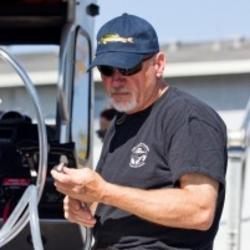
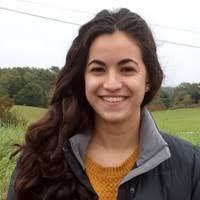
Working Group Leads:
Kevin Kroeger - USGS Woods Hole Coastal and Marine Science Center
Maria Tzortziou - City University of New York
Meagan Gonneea - USGS Woods Hole Coastal and Marine Science Center
Chris Osburn - North Carolina State University
Aleck Wang - Woods Hole Oceanographic Institution
Neil Ganju - USGS Woods Hole Coastal and Marine Science Center
Brian Bergamaschi - USGS California Water Science Center
Alana Menendez - City University of New York



